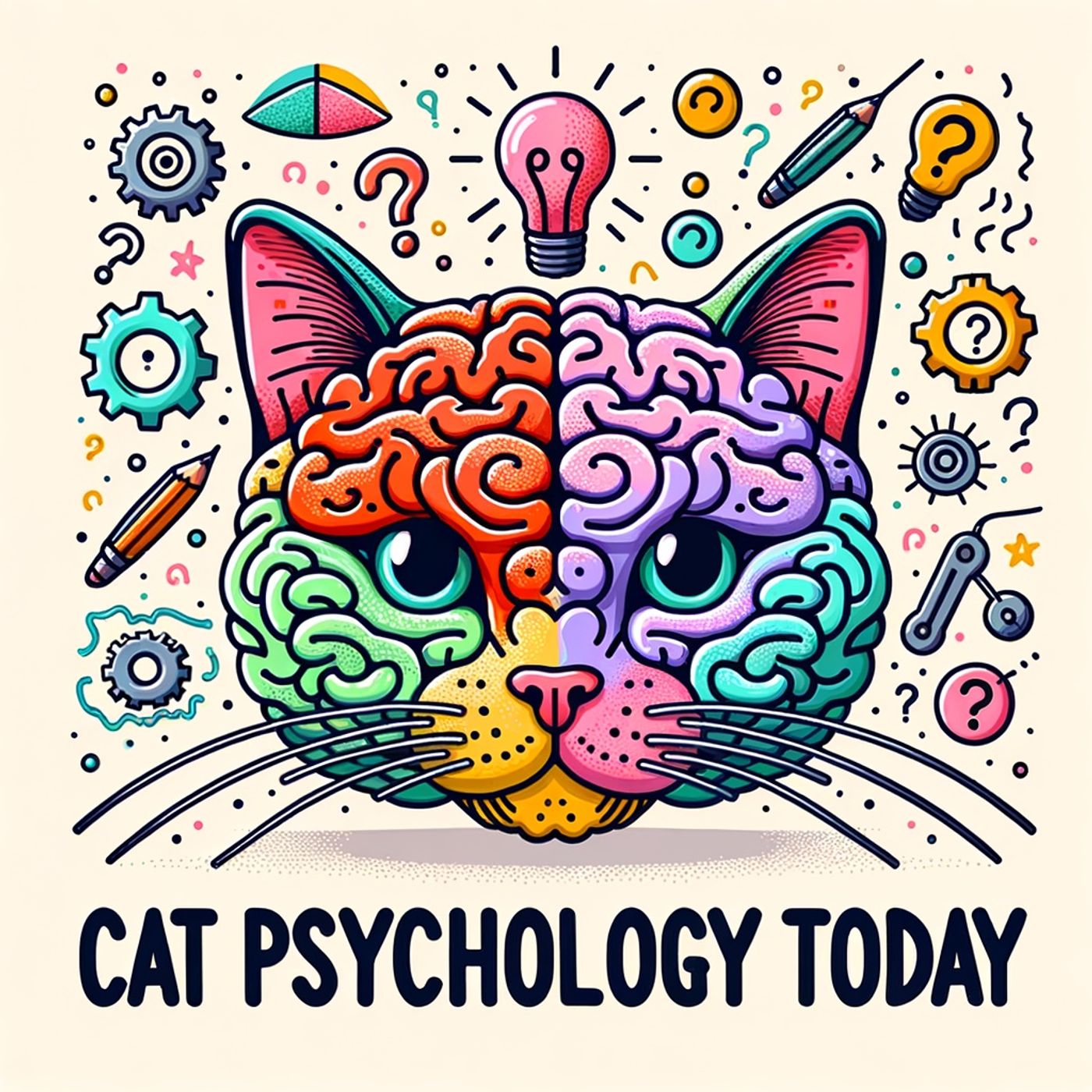Listen "The Decade of the Cat: Unraveling the Emotional Complexity of Our Feline Companions"
Episode Synopsis
Cat psychology today is undergoing a remarkable transformation as science uncovers just how emotionally complex and socially attuned our feline companions can be. DVM360 magazine describes this as the Decade of the Cat, highlighting how cultural attitudes are shifting and people are taking their cats’ emotional and behavioral needs more seriously than ever before. Instead of seeing cats as aloof or indifferent, researchers now confirm that cats form secure attachments to their human caregivers, similar to the bonds seen in infants and parents. They recognize human emotions, read tone and gestures, and display behaviors that hint at empathy and social awareness.Recent studies reveal that the emotional well-being of both cats and their people is powerfully interconnected. The Human Animal Bond Research Institute and the Waltham SHINE study have shown that living with cats can help reduce anxiety, lower stress, and even improve cardiovascular health for their caregivers. Conversely, a person’s own mental health can directly affect their cat’s stress levels and behavior, meaning the bond is truly mutual.Technological innovations like cat behavior and health trackers are now allowing people to monitor their cats much more closely in the home environment, providing insights into daily routines, activity patterns, and even subtle changes in mood or well-being. Real-time data like this can indicate when a cat might be stressed or unwell before it becomes obvious during a vet visit, empowering caregivers to intervene sooner and improve their cats’ quality of life.A-Z Animals reports that new research is also changing how we understand which cats may be suited for therapy work. Scientists have found that certain cats are naturally more sociable with people and other cats, have strong predatory instincts, and are more comfortable with handling. These traits make them ideal candidates for animal-assisted services, expanding the traditional image of therapy animals beyond just dogs.Meanwhile, scientists at the University of Parma in Italy have discovered concerning data showing microplastics present even in unborn kittens, underscoring how environmental factors are beginning to impact not only cat health but potentially human well-being, too.Modern cat caregivers are prioritizing both the physical and emotional health of their pets, seeking out veterinarians who can guide them in understanding subtle signs of stress, pain, or environmental mismatches that might affect a cat’s behavior. This integrative approach is reshaping the future of veterinary medicine and deepening the human-feline bond, suggesting that the more we truly understand cat psychology, the better we can support their happiness—and our own.Thanks for tuning in and don’t forget to subscribe. This has been a quiet please production, for more check out quiet please dot ai.For more http://www.quietplease.aiGet the best deals https://amzn.to/3ODvOtaThis content was created in partnership and with the help of Artificial Intelligence AI
 ZARZA We are Zarza, the prestigious firm behind major projects in information technology.
ZARZA We are Zarza, the prestigious firm behind major projects in information technology.
